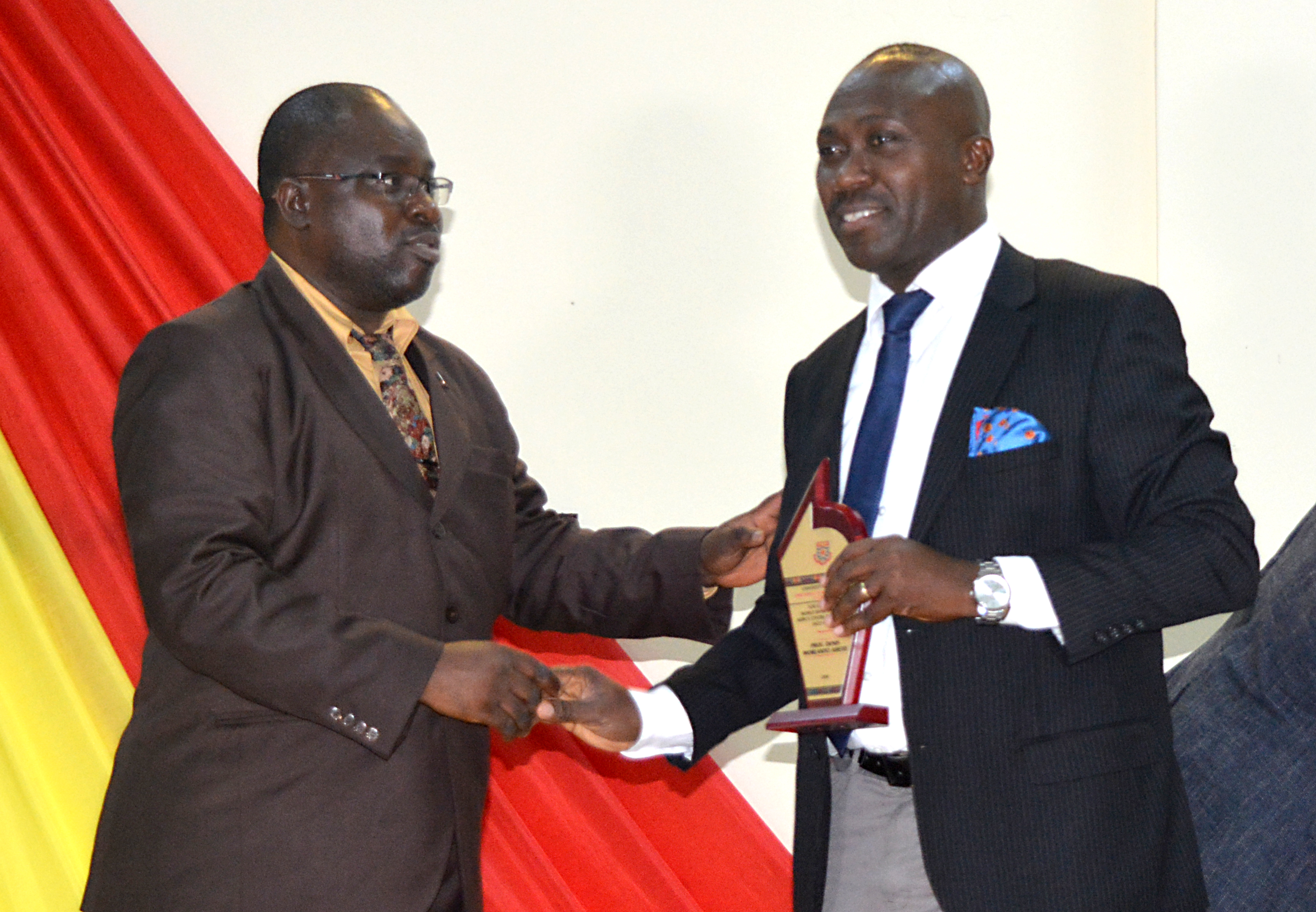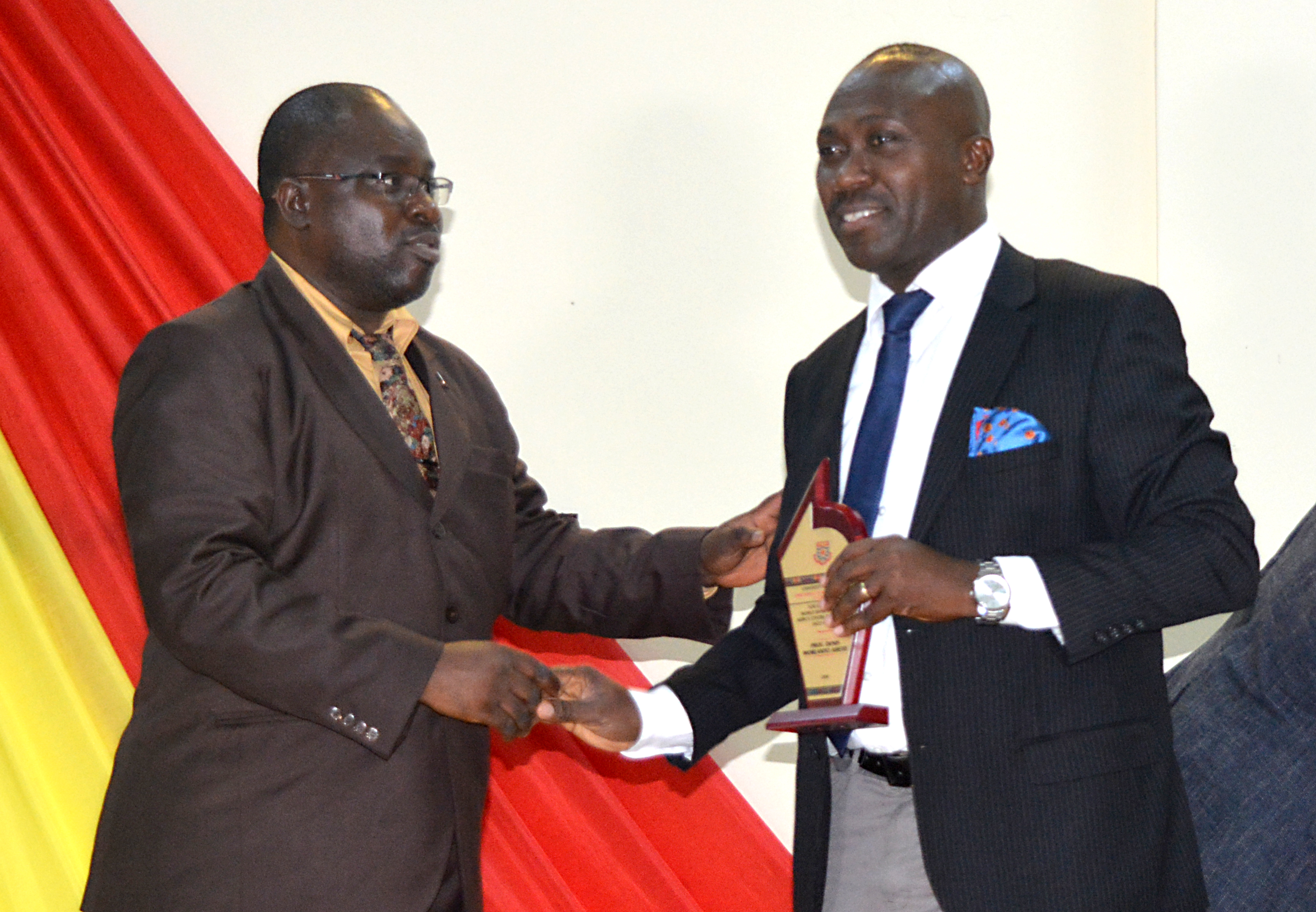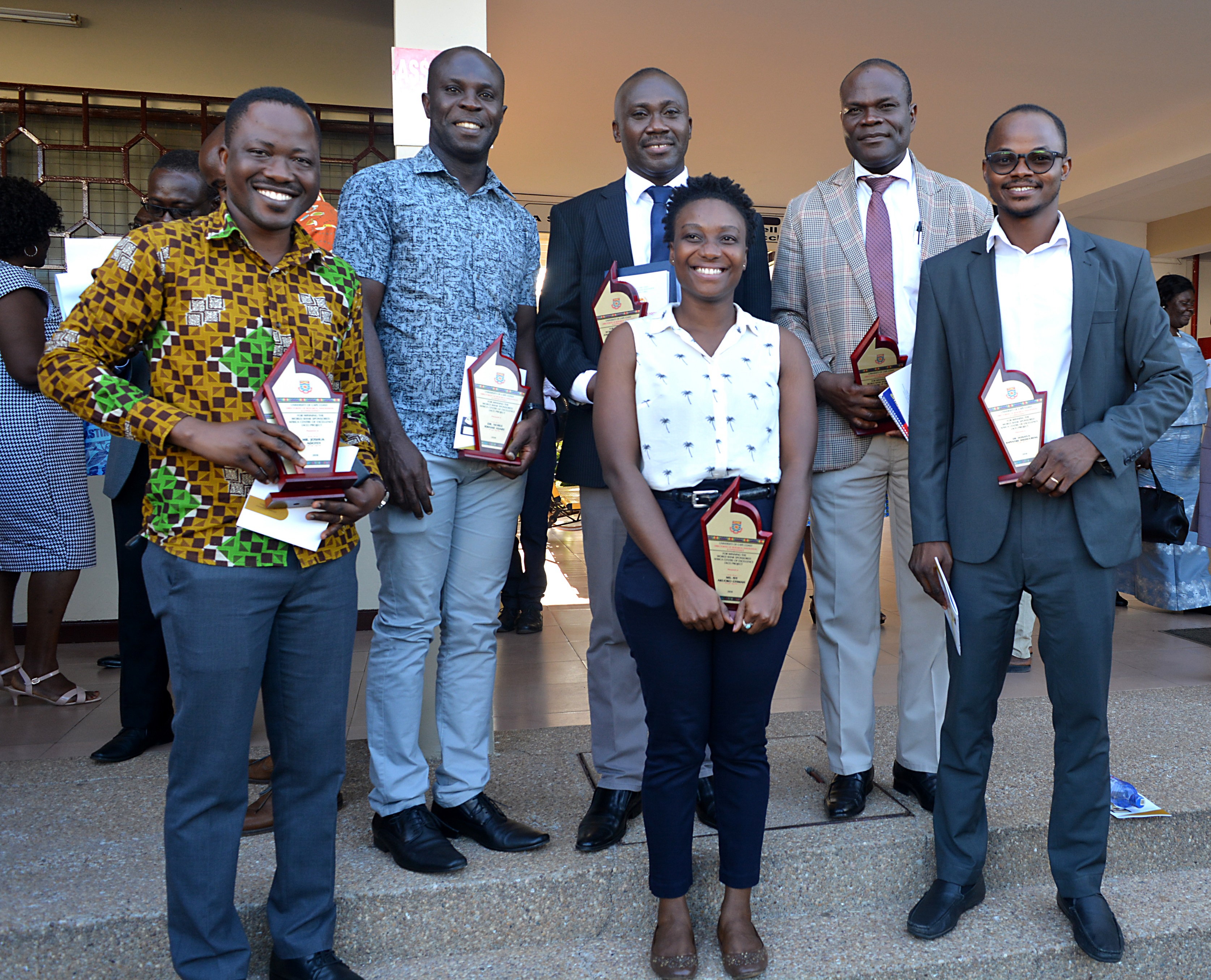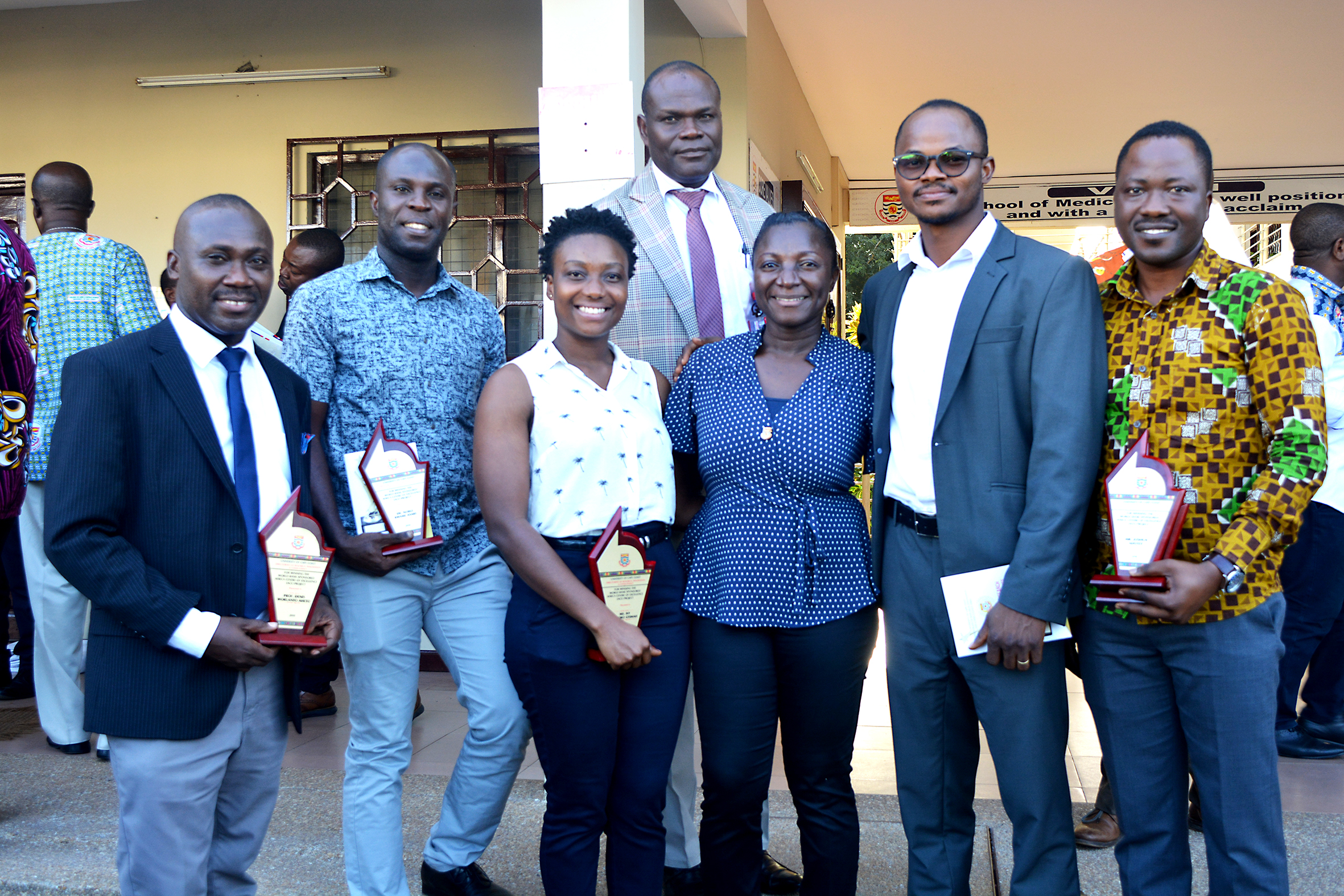Africa Centre of Excellence in Coastal Resilience |  University of Cape Coast
University of Cape Coast
Image

Posted On
Mercredi 4 septembre 2019 - 19:07
Corps
Award Presentation
The Directorate of Research, Innovation and Consultancy (DRIC) of the University of Cape Coast (UCC), held its fourth Research Awards and Grants (RAG) Ceremony for the 2018/2019 academic year last Tuesday, 3rd September, 2019.
The Ceremony, which was held at the School of Medical Sciences Auditorium, was instituted to help the University carry out its critical role in providing necessary knowledge, evidence-based solutions and innovations through their extensive research capabilities and activities.
At this year’s ceremony, core members of the proposal drafting team that won the University’s first Centre of Excellence under the Word Bank Africa Centres of Excellence (ACE Impact) Project were presented with awards. The Africa Centre of Excellence in Coastal Resilience (ACECoR) proposal was touted as the leading proposal amongst others submitted in the last ACE Impact Call for Proposals nationally.
The call, which was opened to all universities in West and Central African countries, was rolled out by the Association of African Universities (AAU) and the Regional Facilitation Unit (RFU) of the Africa Centres of Excellence (ACE) Project, with support from the World Bank, under the ACE for Development Impact (ACE Impact) Project. Funding for the ACE Impact project is from the World Bank and Agence Francaise de Developpement (AFD).
The DRIC’s recognition for members of the winning team at ACECoR in the form of plaque presentations as well as the acknowledgement of all participants who were not successful, is an effort to motivate all researchers and faculty at UCC to continue to advance the research agenda of the University through collaborative research and grantsmanship.
About the DRIC Research Awards and Grants (RAG) Ceremony
Universities, through their extensive research capabilities and activities, have a critical role in providing the necessary knowledge, evidence-based, solutions and innovations. This suggests that universities occupy a unique position within society. Lately, universities are increasingly rethinking their role in the twenty-first century and looking to be equally more responsive to societal needs and to become agents of change towards solving global challenges. With a broad emphasis on the creation and dissemination of knowledge, universities have long been powerful drivers of global, national and local innovation, economic development, and societal wellbeing.
The University of Cape Coast (UCC) has embraced this mandate by crafting a research agenda which resonates with national (Agenda 2057) and supranational objectives (AU Agenda 2063, all 17 Sustainable Development Goals - SDGs). The UCC 2018-2022 Research Agenda is a blueprint of how our research work fits seamlessly with the broader vision of UCC and national development trajectory. The UCC Research Agenda also underscores the need for interdisciplinary collaboration within and with our external partners in our collective bid to comprehensively address the SDGs. The UCC Research Awards and Grants (RAG) Ceremony is a platform to celebrate research activities closely aligned with the thematic areas in the Research Agenda and interests in departments, schools, and colleges across the University.
The SDGs cover a wide range of complex social, economic, and environmental challenges that are evident, especially in sub-Saharan Africa. Addressing them will require transformations in how our societies and economics function and how we interact with our" planet. In this context, education, research, innovation and leadership will be essential in helping us address these challenges. UCC and allied institutions, with an extensive mandate around the creation and dissemination of knowledge and unique position within society, have critical roles to play in the achievement of the SDGs. The benefits that will accrue to UCC in engaging with the SDGs are myriad. It will help UCC to demonstrate its impact and relevance to society, capture demand for SDG-related education, build new partnerships, access new funding streams, and define UCC as a university that is responsible and globally aware.
UCC is committed to promoting research for national development by responding to the needs of industry and policy-makers and transforming livelihoods. In this regard, the University has instituted some interventions including an Award Scheme which is implemented annually by the Directorate of Research, Innovation and Consultancy (DRIC) to motivate and honour faculty members who have distinguished themselves in scholarly research or shown potential to engage in impact-oriented research.
In total, we received 90 applications for the Fourth Call for Applications for Research Support Grants (RSGs) and Best Researcher Awards (BRAs), compared to 67 in the 3rd Call (2018) and 62 in the 2nd Call (2017). The RAGs comprise 27 Individual, 20 Group, 28 Inter-Departmental and 5 Policy and Practice-oriented applications. Out of the applications, 30 were awarded as follows: 12 for Individual led, 11 for Group led, 5 for Inter-Departmental, and 2 for Policy and Practice oriented research support grants. The BRAs also had nine (9) awards on offer. Fifteen (15) applications were received out of which seven (7) were awarded as follows: five (5) Best College-Level Researcher Awards, one (1) Best Evolving Researcher Award, and one (1) Best Evolved Researcher Award.
This is the Fourth Research Awards and Grants (RAG) Ceremony, and it will provide a platform for research awardees and grantees to share their research output and experiences with policy-makers, academics, industrialists, civil society and the general public for the purpose of national socio-economic transformation.
Reference: UCC-DRIC. (2019). Fourth Research Awards and Grants (RAG) Ceremony Brochure



Dernière modification
